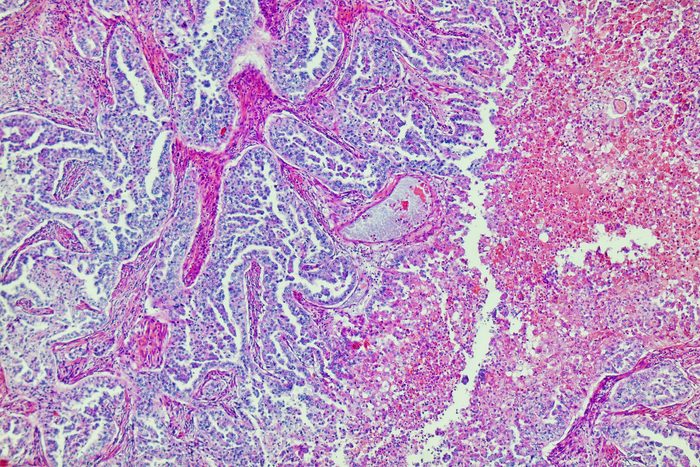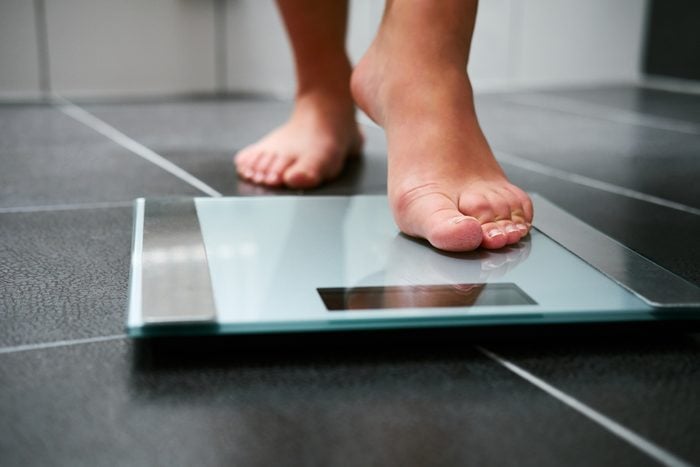
It’s no secret that alcohol impacts the health of your liver. Despite this, the National Institute of Alcohol Abuse and Alcoholism (NIAAA) notes that alcohol use in the United States is a problem. According to the 2019 National Survey on Drug Use and Health (NSDUH), “14.5 million (nearly 15 million) people ages 12 and older (5.3% of this age group) had Alcohol Use Disorder (AUD).”
Says Dr. Adam Scioli, Medical Director and Head of Psychiatry at Caron Treatment Centers: “We tend to ignore our livers, because while you can feel your heart beating, your lungs breathing and your stomach growling, you really have no sensory connection to what your liver is doing.” Dr. Scioli continues: “Most toxins (including alcohol) are absorbed in your intestines and pass through the liver for processing before being distributed to the rest of the body.”
With the holiday party season in full swing, and with Dry January on the horizon (one research firm estimated that 35% of Americans tried their hand at Dry January in 2022), it makes sense to think about the effect of alcohol on your body, your mental health, your work and your relationships. “Medical students famously learn that nearly two-thirds of the liver can be all but obliterated, and the organ will reconstruct and reconstitute itself,” explains Dr. J. Wes Ulm, a US-based physician, medical researcher, and bioinformatics expert. “This, in turn, provides some good news for alcoholics and others with chronic liver disease.”
If you’re curious about sober-living and alcohol-free spirits, looking to cut back on alcohol, or just curious about the effects it can have, then learning what happens to your liver when you drink—and when you stop—is an excellent place to start.
The Best Foods for Your Liver, According to Hepatologists and a Dietitian

The liver will regenerate
It’s important to know that alcohol injury to the liver can be reversible. Alcohol can cause different degrees of damage to the liver depending on the amount consumed, as well as the impact of other medical conditions that a person may have on liver health. “The types of injury alcohol can cause range from fat accumulation in the liver, or steatosis, to inflammation of the liver, hepatitis, to scarring, or cirrhosis,” explains Dr. Lamia Haque, MD, MPH, an addiction specialist at Yale New Haven Hospital. Dr. Haque is a hepatologist (liver specialist) and addiction medicine physician who treats patients with liver diseases and co-occurring substance use disorders. “Because liver disease can be silent in its early stages, it can sometimes take patients by surprise if an abnormality shows up in their blood work or imaging,” Dr. Haque says.
“When a person stops drinking alcohol, there is often improvement in liver injury. If the injury is mild, it may be completely reversed, and if the injury is more chronic, then it may partially improve, but that is still associated with health benefits,” Dr. Haque says. “We recommend that patients with chronic liver disease or other risk factors avoid alcohol to reduce the chance of further harm to the liver, and it is important to note that stopping drinking at any stage of liver disease is associated with benefits.”

Inflammation decreases
Chronic inflammation is an issue that can lead to a variety of conditions, such as arthritis, asthma, diabetes, cancer, Alzheimer’s and heart disease. The Cleveland Clinic‘s blog says, “Chronic inflammation symptoms may be harder to spot than acute inflammation symptoms.”
The Cleveland Clinic also lists signs of chronic inflammation that include abdominal pain, chest pain, fatigue, joint pain and skin rashes.
“This organ has a remarkable capacity for regeneration,” Dr. Ulm says. “With alcoholic liver disease, the proximate cause for many of the liver’s travails is an inflammatory response as the organ suffers its first hits from alcohol-related toxins, a process that feeds upon and exacerbates itself. Drinking cessation breaks this cycle of chronic inflammation that can eventually give rise to cirrhosis, a key first step in healing.”
One Iconic Athlete Shares Why Liver Disease Is So Personal to Him

Fatty content will diminish
According to Harvard Health, fatty-liver disease is on the rise, even among non-alcoholics, and impacts roughly 20 to 40% of the US population. “Fatty liver disease is one of the first hallmarks of hepatic (liver-related) injury and can occur acutely after a single binge-drinking session,” Dr. Ulm says. “It’s unsurprisingly quite prominent in a liver with more chronic insults to its function and well-being. When drinking is discontinued, the fatty ‘gunk’ throughout the tissue begins to dwindle.”

Blood sugar regulates
When you quit drinking alcohol, the liver restores its capacity to regulate blood sugar, helping to stave off insulin resistance and Type 2 diabetes. “A liver damaged by excessive alcohol intake loses some of its sensitivity to insulin, contributing to the insulin resistance that’s a classic manifestation of Type 2 diabetes,” Dr. Ulm explains. “Halting alcohol consumption, in turn, offers the liver the breathing room it needs to restore this pivotal function, which in turn helps it to reconstitute its blood sugar regulatory role and reduce the risk of diabetes.”

Your blood flow will improve
A liver taxed by alcohol does a number on your entire circulatory system. “If the liver becomes congested with scar tissue, it will cause the rest of the circulatory system to back up, which can lead to heart failure,” Scioli says. “As your liver becomes damaged by alcohol, there’s a potential cascade of consequences throughout the body.”
Quitting alcohol will also have a positive impact on your sexual health. “Alcohol consumption inhibits blood flow,” says Daniel Atkinson, MBBS, Clinical Lead of Treated, who explains this “can lead to male erectile dysfunction,” and in women it can “cause the menstrual cycle to become disrupted and even bring ovulation to a halt.”

Your skin will improve
The skin is the body’s largest detoxifying organ. If your liver isn’t functioning at its peak due to alcohol consumption, your skin is likely to show that.
“Alcohol can exacerbate facial redness, especially in those already predisposed to rosacea,” says Carmen Castilla, MD, a New York City-based, board-certified dermatologist. “As it is broken down in the body, alcohol promotes the release of histamine, which is thought to dilate blood vessels leading to facial redness. Stopping alcohol can help improve redness and rosacea.”
In addition, alcohol is a diuretic, which means it promotes water loss through increased urination. “Dehydration can lead to dry, dull appearing skin,” explains Dr. Castilla. “It will take some time to rehydrate your skin; however, stopping alcohol can improve your skin radiance and glow.”

You’ll sleep better
Passing out after a night of drinking is not the same as getting a good night’s rest, as anyone who has ever woken up exhausted the morning after a party knows too well. “Alcohol help may help you to fall asleep initially, but it ultimately disrupts your sleep cycle,” Dr. Castilla says. This can lead to undereye bags. “Stopping alcohol can help you get a better night’s sleep and appear refreshed in the morning,” Dr. Castilla says.
The liver is a crucial organ in our bodies, although it is often forgotten in day-to-day life. It plays a significant role in metabolism and processing of nutrients, medications, and potential toxins, as well as production of important substances that the body uses. “I have heard some of my colleagues joke that the liver has a fitting name as we truly need it to work to live,” Dr. Haque says. “Because of the centrality of the liver in our health, things like sleep can be affected when a person has advanced liver disease.”
Can’t Sleep? A New Study Found This Solution Was More Powerful Than Melatonin

Your mental health will improve
Alcohol is a depressant. “Roughly 40% of heavy alcohol users will develop depression or a condition with similar symptoms,” Dr. Atkinson says. “According to a study published in the Archives of General Psychiatry, ‘the use of alcohol acts to trigger genetic markers that increase the risk of depression.'”
“For those who are looking to adopt healthier drinking habits in the New Year, giving up alcohol for the month of January is a great way to start,” Dr. Atkinson says. “But this alone is not a counteractive solution to the health risks posed by habitual overuse over the course of the 11 months outside Dry January. To paraphrase a well-worn cliche (apologies in advance): moderation is for life, not just for the new year.”
